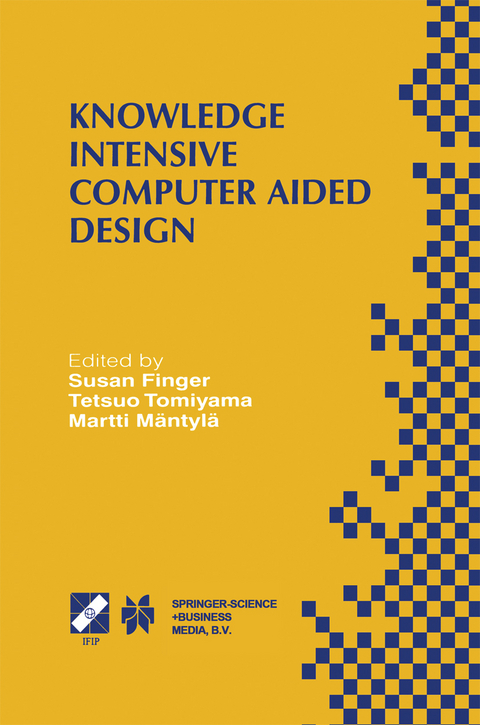
Knowledge Intensive Computer Aided Design
Springer-Verlag New York Inc.
978-1-4757-5636-4 (ISBN)
Susan Finger is a Professor at the Department of Civil Engineering, Carnegie Mellon University, Pittsburgh, PA, USA. Tetsuo Tomiyama is a Professor at RACE, The University of Tokyo, Japan. Martti Mäntylä is a Professor at the Laboratory of Information Processing Science, Helsinki University of Technology, Finland.
One: Report on Workshop.- Knowledge Intensive Computer Aided Design: Past, Present and Future.- Two: Invited Talk.- 2. Supporting the Knowledge Life-Cycle.- Three: Ontology.- 3. Ontological Commitments in Knowledge-Based Design Software: A Progress Report.- 4. Classification of Knowledge for Generating Engineering Models: A Case Study of Model Generation in Finite Element Analysis.- 5. Design History System: Data Models & Prototype Implementation.- Four: Knowledge Intensive CAD (MC).- 6. Modeling of Product Life-cycle Knowledge and Data for an Intelligent Concurrent Design System.- 7. Model Sharing among Agents in a Concurrent Product Development Team.- 8. Design-to-Manufacture Information Transfer in the Context of Solid Freeform Fabrication Technologies.- 9. An Application of the Knowledge Intensive Engineering Framework to Building Foundation Design.- Five: Knowledge Intensive Design (MD).- 10. Supporting Conceptual Design: A Model for Reflective-Interactive Design.- 11. A Knowledge Based Engineering Application to Support Weight Distribution Analysis for IRL Cars.- 12. Lens Barrel Design Based On Distributed Knowledge-Base.- Six: Knowledge Representation for MC.- 13. Guiding Agent Learning in Design.- 14. A KICAD Tool For Pro-Active Exploration Support To ‘Design Synthesis For Multi-X’.- Author index.- Keyword index.
| Erscheint lt. Verlag | 8.1.2013 |
|---|---|
| Reihe/Serie | IFIP International Federation for Information Processing ; 33 |
| Zusatzinfo | XII, 326 p. |
| Verlagsort | New York, NY |
| Sprache | englisch |
| Maße | 155 x 235 mm |
| Themenwelt | Kunst / Musik / Theater ► Design / Innenarchitektur / Mode |
| Mathematik / Informatik ► Informatik ► Datenbanken | |
| Informatik ► Theorie / Studium ► Künstliche Intelligenz / Robotik | |
| Informatik ► Weitere Themen ► CAD-Programme | |
| Medizin / Pharmazie | |
| Naturwissenschaften ► Chemie ► Technische Chemie | |
| Technik ► Maschinenbau | |
| ISBN-10 | 1-4757-5636-4 / 1475756364 |
| ISBN-13 | 978-1-4757-5636-4 / 9781475756364 |
| Zustand | Neuware |
| Informationen gemäß Produktsicherheitsverordnung (GPSR) | |
| Haben Sie eine Frage zum Produkt? |
aus dem Bereich


